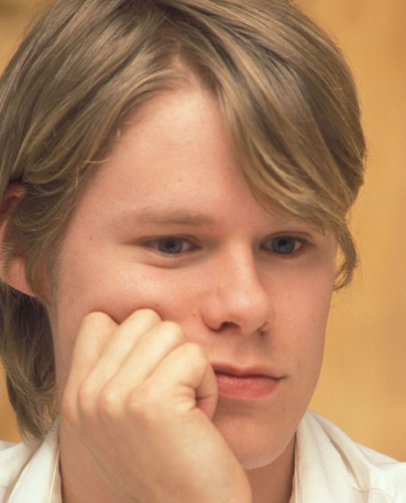
Randy Harrison’s the new Emcee in “Cabaret”
Friday, July 1, 2016
by: Tony Bravo
Source: sfgate.com
Edited by: Marcy
“It’s been a while since I was on top of a bar,” Harrison jokes, then avoids answering whether he was last there for professional or personal reasons.
The 38-year-old actor is best known for his five seasons as Justin Taylor on the groundbreaking Showtime series “Queer as Folk,” which followed a group of gay men in Pittsburgh. Since the show concluded in 2005, Harrison has acted primarily in theater as well as co-starring with Michael Urie in the 2014 film “Such Good People.” We talk to Harrison about building the Emcee character, the upcoming Web series he directed and co-produced and his childhood connection to San Francisco author Armistead Maupin.
Q: Was the role of the Emcee a “bucket list” part for you?
A: As a younger actor I never knew if I’d be right for this role. I thought it might be past my wheelhouse. Since this revival in 2014, I suddenly realized I’ve aged into it and become right for the role. I grew up on the film, then saw this production originally (in the 1990s) with Alan Cumming and loved it.
Q: What kind of character building did you do for the mysterious part?
A: The director had all the Kit-Kat Club girls and boys write personal biographies. It made my numbers in the show personal and gave him a point of view. I also read the (Christopher) Isherwood stories, “Christopher and His Kind” and the two “Berlin Stories” (which the play is based on). Then I read about how Hal Prince created the character (in the original Broadway production). He saw this circus sideshow in Budapest during the war in a tent. The character was actually a little person with jet black hair and white makeup. It all helped me understand what the time period felt like.
Q: Do you think “Cabaret” is reverberating with audiences in a new way ?
A: A lot of it feels very personal and deeply relevant right now. Even just the class stuff, the disappearing of the American middle class and my character calling out poor people in the song “Money.” It’s vicious, but that was very much what was happening in Berlin at the time. There was a massive impoverishment and then these insanely wealthy pockets.
Q: Have musicals been a longtime love?
A: Yes. I did a production of “Wicked” 10 years ago with Joel Grey (the original Emcee) and played Boq. I went to school for musical theater at Cincinnati Conservatory of Music, but I was really burnt out on musicals by the time I graduated. Then I got “Queer as Folk” and didn’t do musicals for five or six years. Storytelling with music is a really powerful device.
Q: What do you feel the “Queer as Folk” legacy is?
A: I think it was especially important for people who were teens at the time. That makes me feel good because that’s who I thought of when I was making the show. I’m 38, and when I was growing up, there was very little representation. I feel like it was the zeitgeist in an important time for gay visibility.
Q: What’s on the horizon after “Cabaret”?
A: I directed for the first time, a Web series my friends wrote called “New York Is Dead.” It’s about artists who are being forced out of New York, so they become hit men. I’ve lived in New York since 2000, and everyone I know is leaving because they can’t afford it. Bebe Neuwirth, Ana Gasteyer, John Early and Jemima Kirke are in it. We’re shopping it around.
Q: How has your time in San Francisco been?
A: I’ve had such a romantic, fictionalized relationship with San Francisco, but I’d never been here until two or three years ago. My mother ( Diane Cox) went to high school with Armistead Maupin in North Carolina, and when I was 14 before I came out, she slipped me the “Tales of the City” books. Mothers always know. I’ve never met Armistead, but I’d love to. Those books were one of the reasons I could come out. I feel like I’m seeing the tail end of San Francisco with the housing situation, but hopefully it’ll shift. We have city anxiety. In San Francisco and New York, as artists especially it can be difficult.
Q: City anxiety is appropriate, given the themes of the play.
A: In the theater we’re like blue-collar workers: It’s a physical job, you don’t make a lot of money, and you’re on the road all the time. It’s worth it in that it’s the best job in the world, but you have to negotiate living in cities that don’t always accommodate you.
Q: Anyone special in your personal life?
A: I have a 20-year-old cat, Ella-Electra, who, God bless her soul, has been about to die for six years. When I booked this job a year ago, I thought she’d be dead by January; she was very ill. She’s had a great kitty life but … she won’t die. My friend has been taking care of her, and now she’s heading to Europe, so she’s coming out here to bring me my cat in San Francisco. I’ll be traveling with her, so I’ll be the old guy carrying the old cat around. I’ll be an old cat lady. .
Written by Tony Bravo - Edited by Marcy